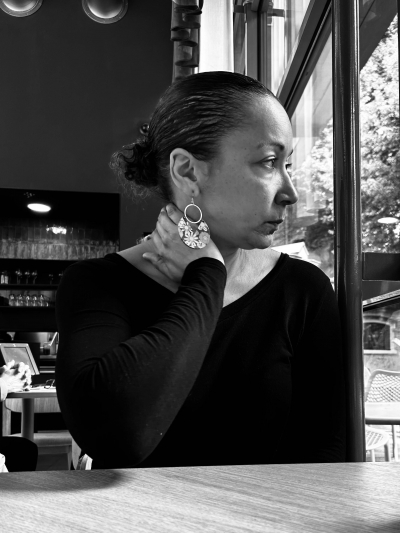A New Voice on Loss

“This book begins with my mother’s story. But if I am honest, the book is entirely about her, and the experience of losing her in slow motion.”
Jennifer Nash, Jean Fox O'Barr Professor of Gender, Sexuality and Feminist Studies, has always written about personal experiences such as Black motherhood, Black feminism, intersectionality and pornography.
But her new book, “How We Write Now: Living with Black Feminist Theory," feels different. It’s more visceral, raw. She writes with a different voice, one that bares her soul on every page and dares the reader to do the same.
“In the time it takes me to write this book,” writes Nash, “my mother may lose her capacity to read this sentence. Every morning when I meet this work, I write against the cruel force of that realization.”
“How We Write Now” centers the loss of her mother to Alzheimer’s, and how loss intersects with writing in Black feminist theory. Loss has long played a prominent role in the field, and circumstances in Nash’s life led her to examine the way theorists talk about loss more in-depth.
“I came to this topic at a particular moment in my life, when I was losing my mother,” says Nash. “And it was impossible for me to write about loss without writing about her, or at least it felt dishonest for me to write about loss without writing about her.”
While writing, Nash connects with how Black feminists use beautiful writing to explore the theme of loss. Drawing from writers like Jesmyn Ward, Elizabeth Alexander, Christina Sharpe and Natasha Trethewey, Nash explores how these writers use their words to make readers feel, reflect and rebuild themselves.
“Black feminists have been instrumental in forging a new, different grammar for thinking about loss,” says Nash. Through her own writing, Nash illustrates how Black feminism acts as a companion to readers and helps them navigate their lives amidst loss.
More than simply an academic text, Nash weaves in stories of her mother’s life alongside exploration on George Floyd, the COVID-19 pandemic and the Black Lives Matter movement.
“Black feminism has recently found a life outside of the academy,” says Nash “And it's in demand in a different kind of a way than it was when I started writing.” She points to writers like Jesmyn Ward and Roxane Gay, who helped usher in a new audience for Black feminist writing.
“Black feminist scholars are finding a different voice,” says Nash, “And it’s accessible to people who wouldn’t normally engage with academic theory.” She says she is trying to draw on the tradition of writers like bell hooks, who showed people you could write personally and academically.
“In the late 70s, you couldn't get tenure promotion with that kind of writing,” says Nash. “I’m making the case that this is the kind of writing we do. And it is tangible, and it is serious and scholarly. And it's also personal and intimate.”
Nash acknowledges that this kind of personal writing, while important, can be vulnerable and uncomfortable. But those are the reasons compelling her to write it. She hopes that by doing so, she can push the bounds of what theory should be and what it should do. Still, the question of how to intersect her personal and professional life remained.
“This book is me trying to think through the ethical questions I had when writing it,” says Nash. “What stories are ours to tell which are not ours? I’m trying to make the case that part of what Black feminists have done is to grapple with those questions. I can’t separate my life from my mother. And I couldn’t tell the story of where I am now without narrating her story.”
“How We Write Now: Living with Black Feminist Theory" is out August 9, from Duke University Press.




